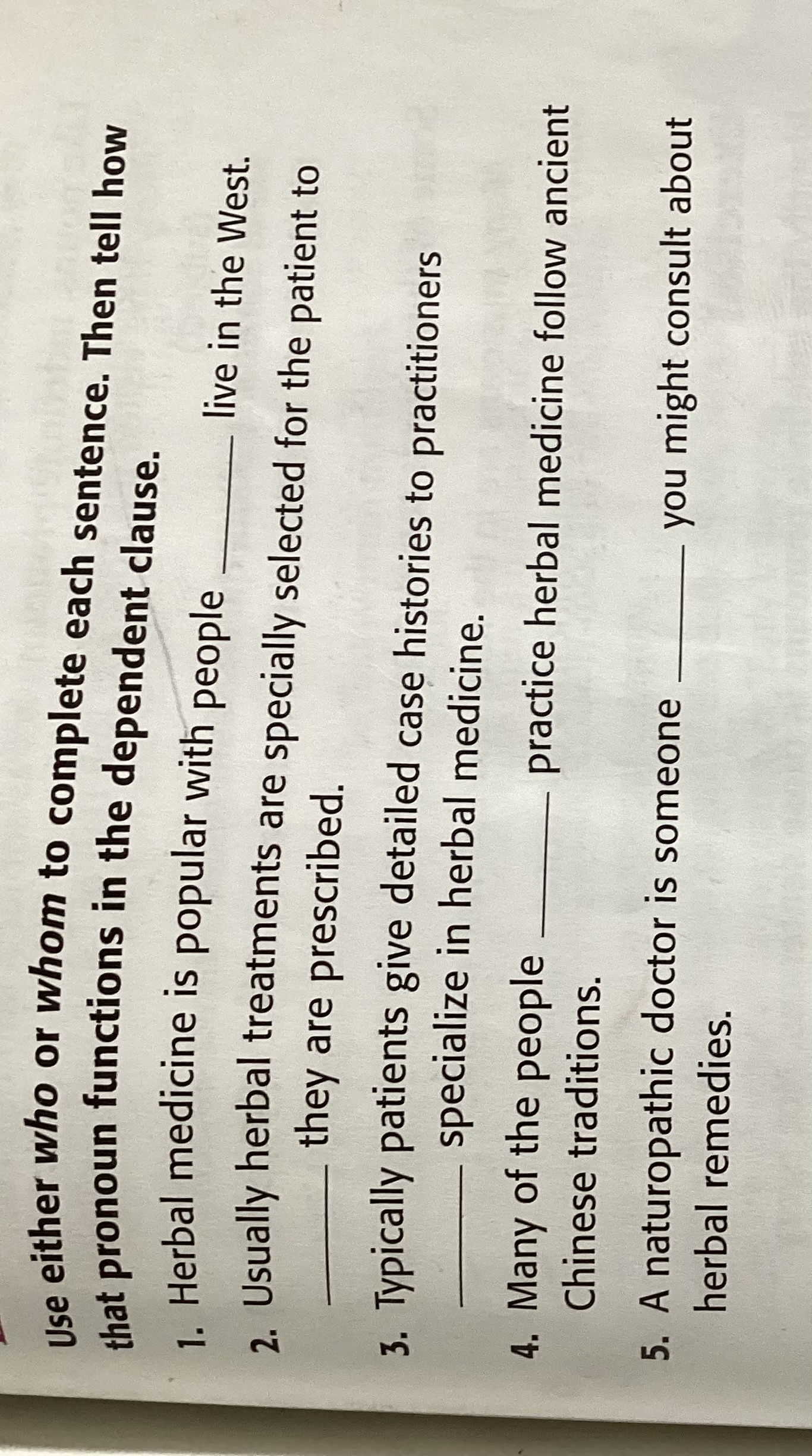Complete each sentence with either "who" or "whom", then describe how that pronoun functions in the dependent clause: 1. Herbal medicine is popular with people ___ live in the West... Complete each sentence with either "who" or "whom", then describe how that pronoun functions in the dependent clause: 1. Herbal medicine is popular with people ___ live in the West. 2. Usually herbal treatments are specially selected for the patient to ___ they are prescribed. 3. Typically patients give detailed case histories to practitioners ___ specialize in herbal medicine. 4. Many of the people ___ practice herbal medicine follow ancient Chinese traditions. 5. A naturopathic doctor is someone ___ you might consult about herbal remedies.

Understand the Problem
The question asks to complete each sentence with either "who" or "whom", then describe how that pronoun functions in the dependent clause.
Answer
1. who - subject; 2. whom - object of the preposition; 3. who - subject; 4. who - subject; 5. whom - direct object.
- Herbal medicine is popular with people who live in the West. Who functions as the subject of the dependent clause.
- Usually herbal treatments are specially selected for the patient to whom they are prescribed. Whom functions as the object of the preposition to.
- Typically patients give detailed case histories to practitioners who specialize in herbal medicine. Who functions as the subject of the dependent clause.
- Many of the people who practice herbal medicine follow ancient Chinese traditions. Who functions as the subject of the dependent clause.
- A naturopathic doctor is someone whom you might consult about herbal remedies. Whom functions as the direct object in the dependent clause.
Answer for screen readers
- Herbal medicine is popular with people who live in the West. Who functions as the subject of the dependent clause.
- Usually herbal treatments are specially selected for the patient to whom they are prescribed. Whom functions as the object of the preposition to.
- Typically patients give detailed case histories to practitioners who specialize in herbal medicine. Who functions as the subject of the dependent clause.
- Many of the people who practice herbal medicine follow ancient Chinese traditions. Who functions as the subject of the dependent clause.
- A naturopathic doctor is someone whom you might consult about herbal remedies. Whom functions as the direct object in the dependent clause.
More Information
The correct usage of "who" and "whom" depends on their function in a sentence. "Who" is used when the pronoun is the subject of the clause, while "whom" is used when the pronoun is the object of a verb or preposition.
Tips
A common mistake is using "who" when "whom" is required, especially after a preposition. To avoid this, try rephrasing the sentence and see if "he/she" (for who) or "him/her" (for whom) fits.
Sources
- Grammar Practicebook - Timpanogos Elementary School - timpanogos.provo.edu
- 501 Grammar & Writing Questions 3rd Edition - misd.net
AI-generated content may contain errors. Please verify critical information